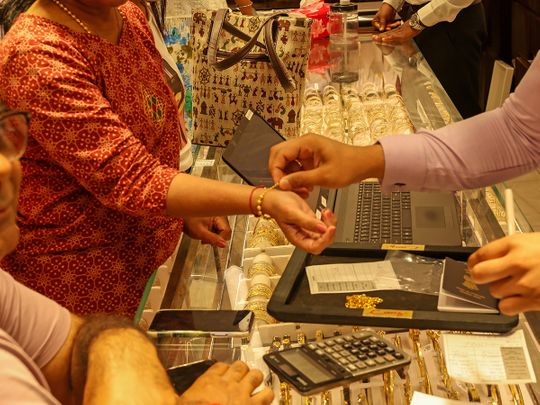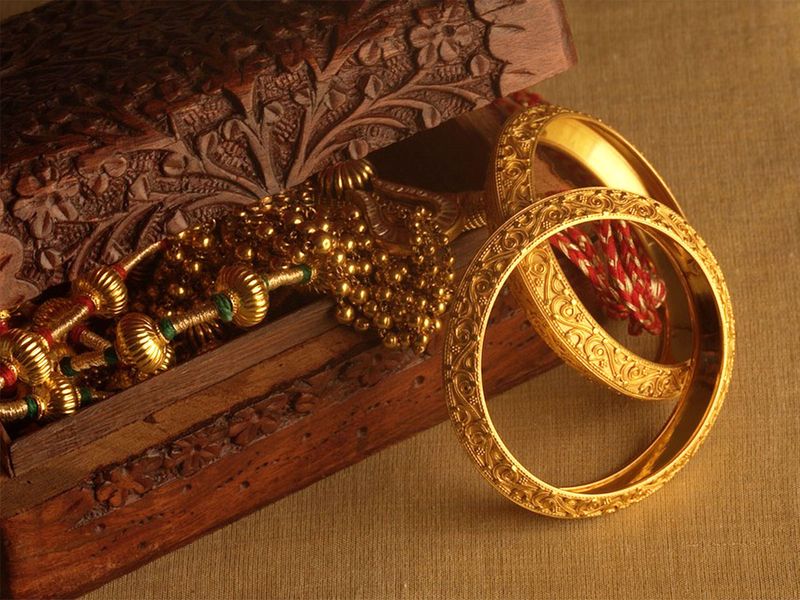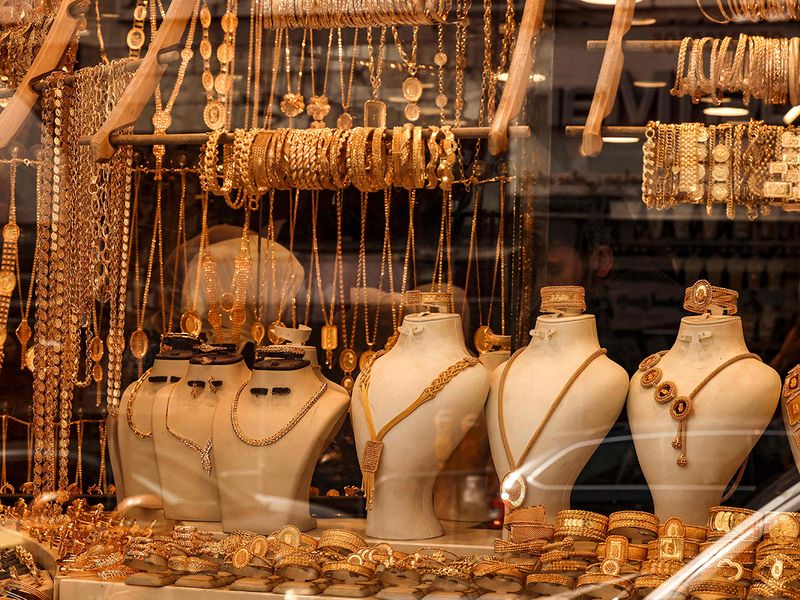
Dubai: Among those who buy gold jewellery, there is often unwillingness to part with it, even when there is an urgent need of cash. While this is partly due to sentimental values attached to such ornaments, it’s also because many are unsure if selling jewellery is the only way to get cash.
“In emergencies, it’s common to sell old gold jewellery for meeting your financial needs, also because prices of gold are at their all-time high currently,” said Georgina Effel, a Dubai-based precious metals retail analyst.
“But it is just as essential to consider using gold, which is stored in your lockers, for getting a gold loan. The processing duration of such loans is much faster, with the loans getting sanctioned almost instantly and the interest rate much lesser than other types of loans.”
“Most banks accept only gold jewellery, and the gold being pledged should be within a range of 18 to 24 karats. Aside from the quality of gold, the loan amount provided is also a certain percentage of the value of the gold being pledged,” added Effel.
“This is why lenders evaluate the pledged gold’s purity and weight before approving the loan application. Based on it, the gold’s market value is determined based on its current rate, which further helps in reaching the final gold amount that is to be sanctioned by lenders.”
How much loan can you get with your loan?
Additionally, Effel further noted that most lenders offer a gold loan with a value up to 75 to 80 per cent of the pledged gold’s market value. For instance, if your gold is worth Dh20,000, the loan amount sanctioned to you would be not more than about Dh15,000.
A metric measuring the percentage of your gold's value you can get from your lender as a loan is ‘loan-to-value’ ratio or ‘LTV’. “To determine the amount to lend to you against your gold, lenders assess LTV to ensure the amount stays within your repayment capacity or the value,” she added.
“Besides the LTV, loan amount also depends on various other factors such as the loan’s tenure and the borrower’s repayment capacity. You can repay the gold loan through monthly instalments after which you get your gold articles back.”

Restrictions on what gold loans can be used for?
Unlike other secured loans such as a home loan or car loan, there are no restrictions on the end use of gold loans. Being a secured loan, gold loans are generally subject to lower rates of interest as compared to other financing options such as personal loans, home loans, or other secured loans.
The prepayment period or gold loan tenure varies from one lending institution to another. It usually ranges from 6 to 48 months. Depending on a case, some lenders even offer a longer tenure or allow you to renew it in order to extend the tenure.
“Since the tenure of the gold loan is shorter in comparison with other types of loan, make sure you repay the loan amount on time. If not, keep in mind that defaulting on gold can lead to losing your gold for good,” Mohammed Shaan, a Dubai-based investment advisor.
As per the evaluations, the lender sanctions the loan amount. As per the loan agreement, you pay off the principal amount, i.e. the initial sum of money borrowed from the lender, along with the interest amount and get the pledged gold articles back.
What are the risks to borrowing against your gold?
“Since gold loans are calculated based on the amount and value of gold, fluctuating gold prices can affect amount and interest rates. Also, gold loans often come with processing fees which differ from lender to lender. Some might charge a high processing fee on your gold loan,” he added.
So, compare different options to find the most affordable option for you. Also, the limitations on the type of gold you pledge (within a range of 18 to 24 karats) and how much loan is offered to you based on its value (75 per cent to 80 per cent of the value) are other factors contributing to its downsides.”
In other words, as the maximum loan disbursal amount can be only up to 75 per cent to 80 per cent of the value of the gold placed as collateral, lesser gold means a lower loan amount. Also, with the limitations on the purity of gold you pledge, you cannot just borrow against any gold.

Verdict: Gold loans are a great option for your short-term cash needs
While loans are a cost-effective way to meet your short-term cash needs, it is much more cost effective to borrow by putting to use and pledging your gold jewellery that you don’t use anymore. However, keep in mind certain factors before proceeding. Here’s a brief recap….
“The minimum purity lenders accept is 18 carats, and they may not take gold below this. Also, gold bars can’t be pledged, but coins can be, aside from jewellery. But for coins, they may ask for higher purity and have restrictions on the weight. Many don't accept coins above 50 grams,” Shaan added.
“While gold loans are convenient, opt for them only when you are facing a temporary cash-flow problem. Don't use them to fund a big expense, like buying a car or maybe even an apartment back home. Keep the tenure of the loan as short as possible.”
However, aside from their numerous advantages, key factors that give them an edge over other loans is the low-interest rates and high LTV that they guarantee. Moreover, as gold prices are usually on the higher side, it increases your borrowing capacity as you get more value from your gold.
To answer the question posed in the beginning, you would be better off borrowing against your gold as opposed to selling them, primarily because you will still hold on to your gold and stay invested as long as you pay your monthly dues. Bear in mind, however, borrowing has its usual risks.










